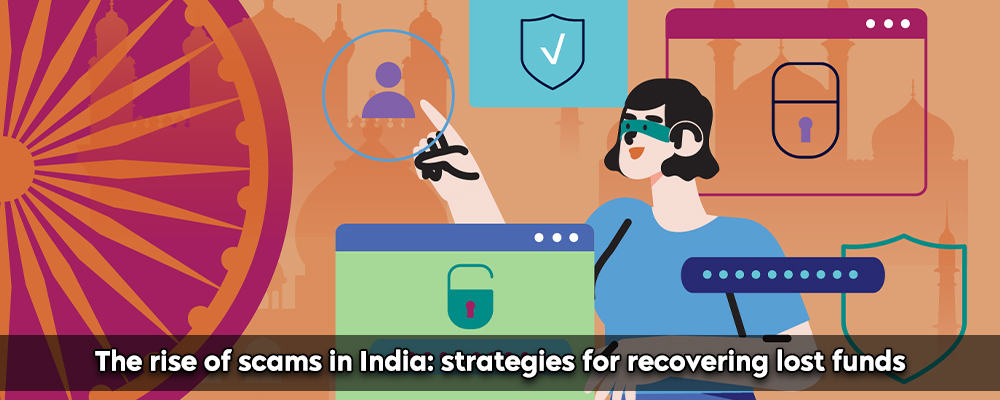The helpline’s local state police officials will receive support from the Citizen Financial Cyber Frauds Reporting and Management System, a centralized integrated system for banks, e-wallets, and other stakeholders. An officer of the law explained how the system worked. The police operator records the caller’s basic personal information and the specifics of the fraudulent transaction, which they then enter into a ticket on the Citizen Financial Cyber Frauds Reporting and Management System.
A ticket is given to the necessary banks, wallets, merchants, and so forth, depending on whether the money was taken from the victim’s wallet or bank account. The financial company conducting the transaction will investigate the sender’s and recipient’s transaction details as well as any online fraud. If the stolen money is still available, the bank puts it on hold so the scammer can’t take it out. The ticket is advanced to the next level at that bank if the pilfered funds have been moved to another bank. To ensure that the money does not end up in the hands of scammers, this process is repeated.
The online fraud victim will get an SMS containing a complaint acknowledgment number and instructions to use the number to report any pertinent information about the scam on the National Cybercrime Reporting Portal within a day. The Indian Cyber Crime Coordination Centre (I4C) under the Ministry of Home Affairs has launched the helpline 155260 and its reporting platform with the active support and cooperation of the RBI, all of the country’s main banks, wallets, Payment Banks, and internet merchants.
Need A Legal Advice
The internet is not a lawyer and neither are you. Talk to a real lawyer about your legal issue

Bank’s Responsibility
Previously, it was the user’s responsibility to demonstrate that they had not disclosed their bank account information to third parties. Currently, the bank must demonstrate that the consumer was negligent when using online banking services. Because there were unclear criteria or a set term for refunds under the previous system, customers would sometimes experience losses or the bank would take a lengthy time to process their money. “A lot of individuals are nervous about making purchases online. Customers of banks will become more trusting of these standards.
“Due to the client’s responsibility, banks found that the expense of an efficient fraud monitoring system was greater than the cost of actual fraud. Because of this, all other banks—aside from the largest ones—refrained from purchasing fraud detection systems, according to Patel. According to RBI rules, banks must have a strong and adaptable system for detecting and preventing fraud as well as evaluate any weaknesses and close them.
The customer will receive a complete refund
In these situations, banks will cover the full loss.
- When a fraudulent transaction occurred as a result of a bank’s error or negligence, whether the consumer reported it or not. The payer bank, the payee bank, the payment gateway, and other intermediate platforms are only a few of the platforms that a digital transaction must transit through securely. Data should just be exchanged; neither of the intermediates should store any data. Therefore, the buyer shouldn’t be held accountable if fraud occurs during this process. Mehta of Deloitte Haskins and Sells states that “the bank will have to refund the customer as per RBI recommendations.”
- When a third-party breach occurs, the customer notifies the bank about the transaction within three working days, and the deficiency is not with the bank or the consumer but rather with the system elsewhere.
Restricted responsibility If the customer’s irresponsibility resulted in fraud, they will be responsible for the full loss until the bank is notified of the transaction.
- The customer will be responsible for the whole loss until the bank is notified of the transaction if they unintentionally or knowingly give away private information to third parties, such as their card number or ATM PIN.
- The consumer’s culpability will be limited to the transaction value of Rs 10,000, whichever is less if neither the bank nor the client is at fault but the fraud occurred as a result of a systemic flaw and the customer notifies the bank within four or seven days. Savings bank accounts, credit cards with a maximum limit of Rs 5 lakh, and current accounts with an annual average balance limit of Rs 25 lakh are all subject to the limit. Refunds in full are made to those who notify within three days. The maximum limit is Rs 25,000 for credit cards with limits greater than Rs 5 lakh, current accounts, and overdraft accounts.
Lead India provides a variety of legal services, including free legal advice and online information. Here, you can ask a legal question and talk to a lawyer.





 Talk to a Lawyer
Talk to a Lawyer